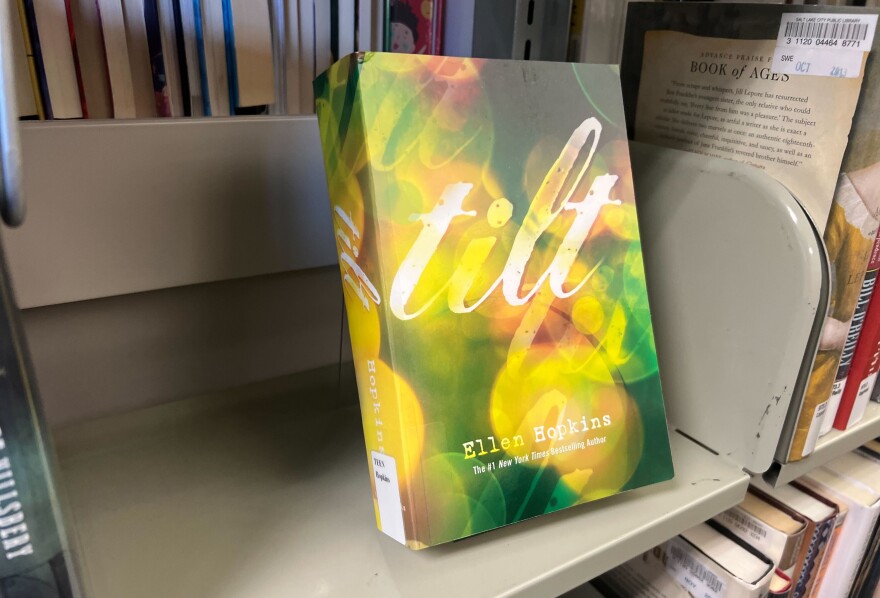This school year, Utah students can once again bring their personal copies of banned books to campus. The updated guidance is a reversal of the Utah State Board of Education’s previous interpretation of the law. However, students still can’t use these books for class assignments.
There are currently 18 books banned statewide under a 2024 state law. Titles are added to the list if three school districts, or two districts and five charter schools, deem the book “objective sensitive material,” meaning they think it meets the definition of “pornographic or indecent” as laid out in state code. Individual districts and schools also have their own lists of titles they’ve removed under the broader category of "sensitive material.”
The state board’s staff and legal counsel have been providing information to schools to help them understand and comply with the law. That included the creation of an FAQ page.
Students were originally allowed to bring their own copies, but in January, staff updated the FAQ page to say that titles on the statewide list were completely banned.
“These titles should not be brought to school or used for classroom activities, assignments, or personal reading while on school property,” the guidance stated at the time.
The January update didn’t say whether students should be disciplined for bringing those books. Instead, it emphasized discussing it with students in an empathetic and calm way. At the time, the state board’s Library Media Specialist Davina Sauthoff told KUER that staff and legal counsel made the change based on their interpretation of what the law explicitly required.
By the end of January, the update had received national attention and drawn the criticism of groups that advocate for free expression, like PEN America. In June, the Foundation for Individual Rights and Expression sent a letter to Sauthoff urging the state board to reverse course. The advocacy group criticized the interpretation of the law and claimed it violated the First Amendment.
Now, the state board is changing its position.
“Students are allowed to have books in their possession that they have purchased for personal use or borrowed from a public library,” the revised guidance reads. “However, titles that have been removed statewide would not be appropriate for school or class assignments.”
In an email Sauthoff sent to district representatives notifying them about the change, she wrote, “After legal review, the USBE has opted to revert back to previous advice, which brings the updated guidance in compliance with the statutory language.”
She referenced a section in state code that defines “sensitive material” as “instructional material.” That means the law deals with books related to curriculum or used to support student learning, like library books, but doesn’t dictate students’ personal reading.
Sauthoff did not immediately respond to KUER’s request for comment on the updated guidance.
In a statement, the Utah School Library Association said it “appreciates the thoughtful review of the sensitive material guidelines and the return to the original legal position that allows students to bring their own books to school."






